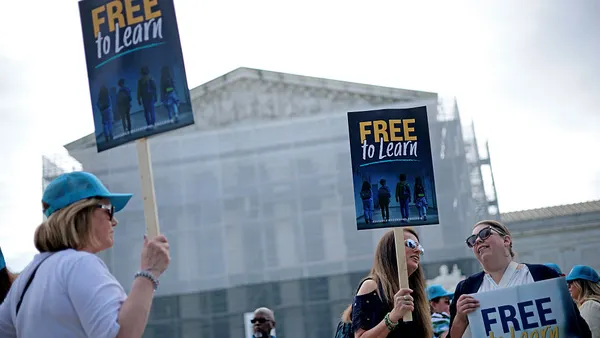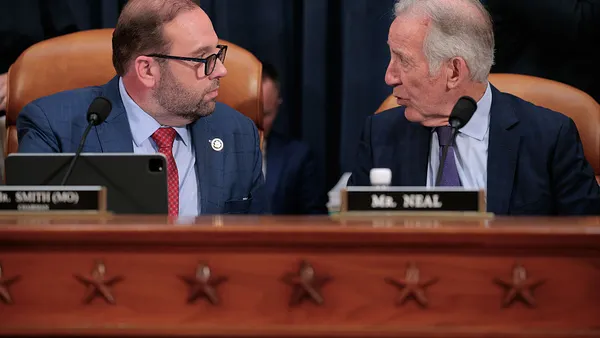Dive Brief:
- A constitutional challenge against Section 504 of the Rehabilitation Act will no longer be pursued in a lawsuit filed by 17 states last year, according to a joint status report submitted by plaintiffs and defendants to the court earlier this month.
- Disability rights advocates and families with children who receive Section 504 accommodations in schools have raised concerns about the states' lawsuit against the U.S. Department of Health and Human Services. That lawsuit, filed in September, challenges an HHS rule that includes gender dysphoria in the definition of a disability under Section 504 and originally argued that Section 504 was unconstitutional.
- While Section 504’s constitutionality is no longer being challenged, disability rights advocates say they are still on alert to legal proceedings and regulatory actions that would take away protections for transgender people with disabilities.
Dive Insight:
The joint status report also notes that HHS, as defendants, are continuing to evaluate their position as a result of President Donald Trump's Jan. 20 executive order shunning "gender ideology extremism." The directive said U.S. policy will only recognize two sexes — male and female.
The states' lawsuit challenges a HHS rule finalized in May 2024 under the Biden administration that requires child care, preschool, elementary, secondary, postsecondary, and career and technical education programs to provide Section 504 services to students with gender dysphoria. The term describes the distress felt when one’s gender expression doesn’t match their gender identity.
Additionally, on April 11, HHS published a clarification to the preamble of the Section 504 regulation, saying that the language concerning gender dysphoria "does not have the force or effect of law. Therefore, it cannot be enforced."
Section 504 of the Rehabilitation Act of 1973 prohibits discrimination on the basis of disability in K-12 schools and colleges that receive federal funds. Students’ Section 504 accommodations can include academic, mental and physical supports.
In a Feb. 14 update on its website, Disability Rights Education and Defense Fund said that if Section 504 were declared unconstitutional, it would be “a disaster for people with disabilities.”
The states involved in the case are: Texas, Alaska, Alabama, Arkansas, Florida, Georgia, Indiana, Iowa, Kansas, Louisiana, Missouri, Montana, Nebraska, South Carolina, South Dakota, Utah and West Virginia. The lawsuit was filed in U.S. District Court Northern District of Texas.














